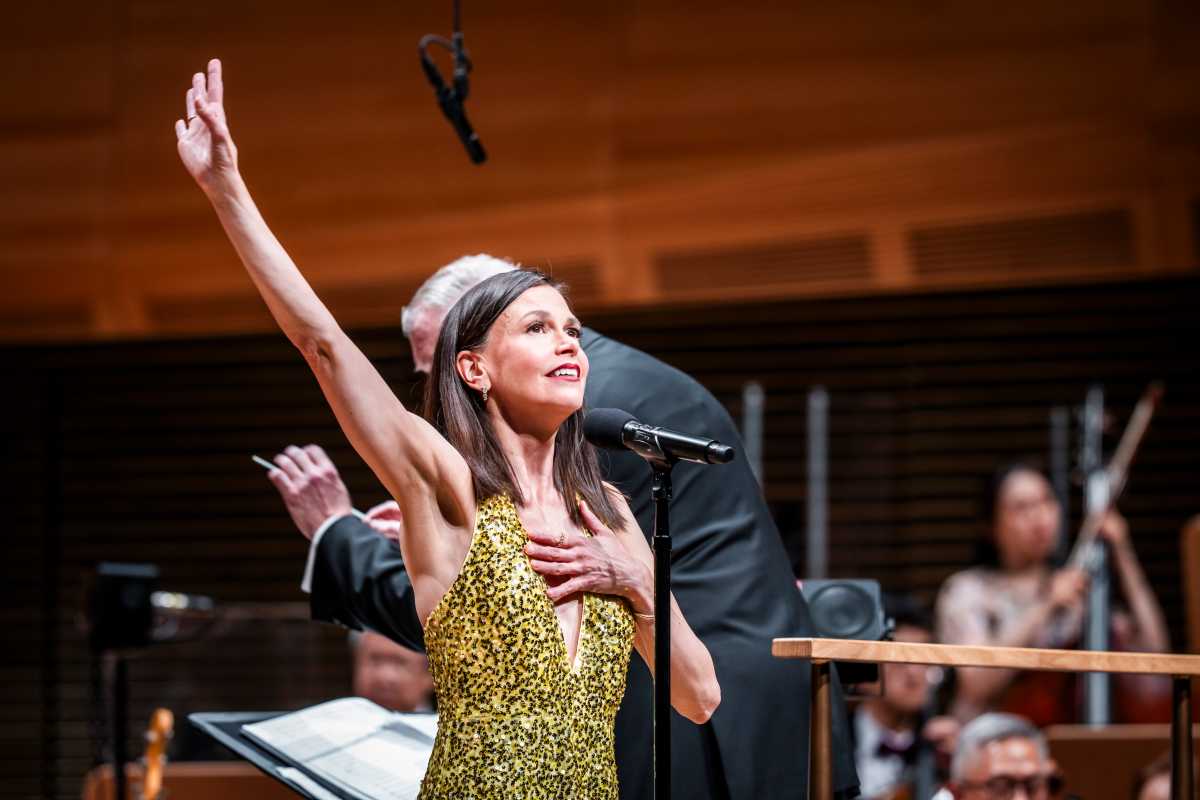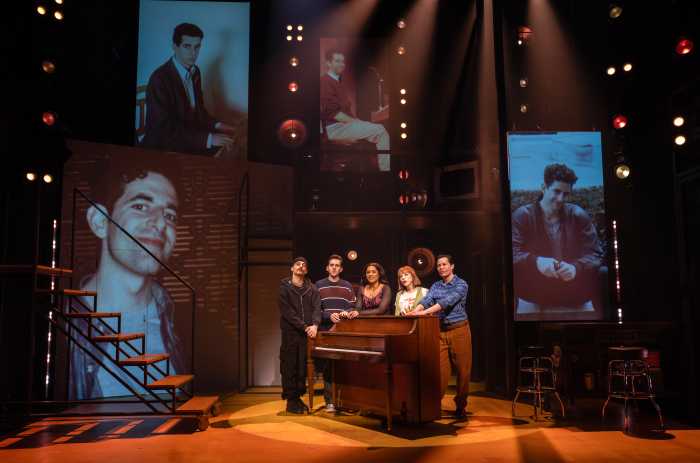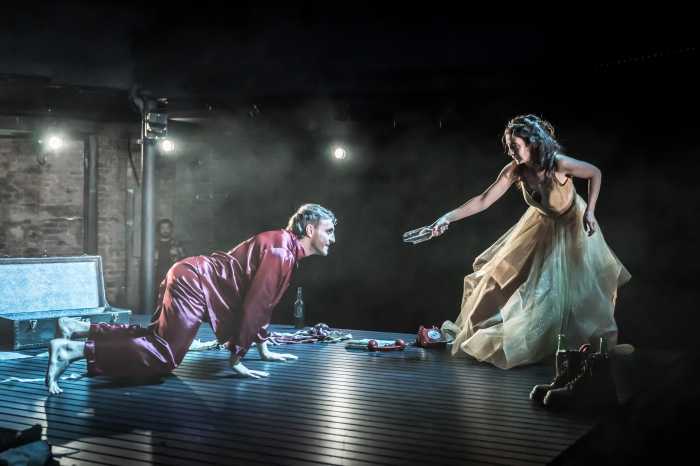On Tuesday evening, under a velvet Manhattan sky, the New York Philharmonic’s Spring Gala unfolded not as an event, but as an enchantment. What took place inside David Geffen Hall was neither a concert nor a ceremony alone—it was a luminous collision of legacy and song, a night suspended delicately between celebration and transcendence.
The occasion honored Gurnee and Marjorie Hart, cultural stalwarts whose decades-long commitment to the Philharmonic has left an indelible mark on New York’s artistic landscape. The tribute was deeply felt, yet what followed lifted the evening beyond its elegant premise and into the realm of the sublime.
The Philharmonic opened, self-conducted, with Bernstein’s Candide Overture—a daring display of unity and precision that pulsed with kinetic joy. It was both a declaration of mastery and a quiet rebellion, as if the Orchestra were saying: We know who we are.
And then, Sutton Foster appeared.
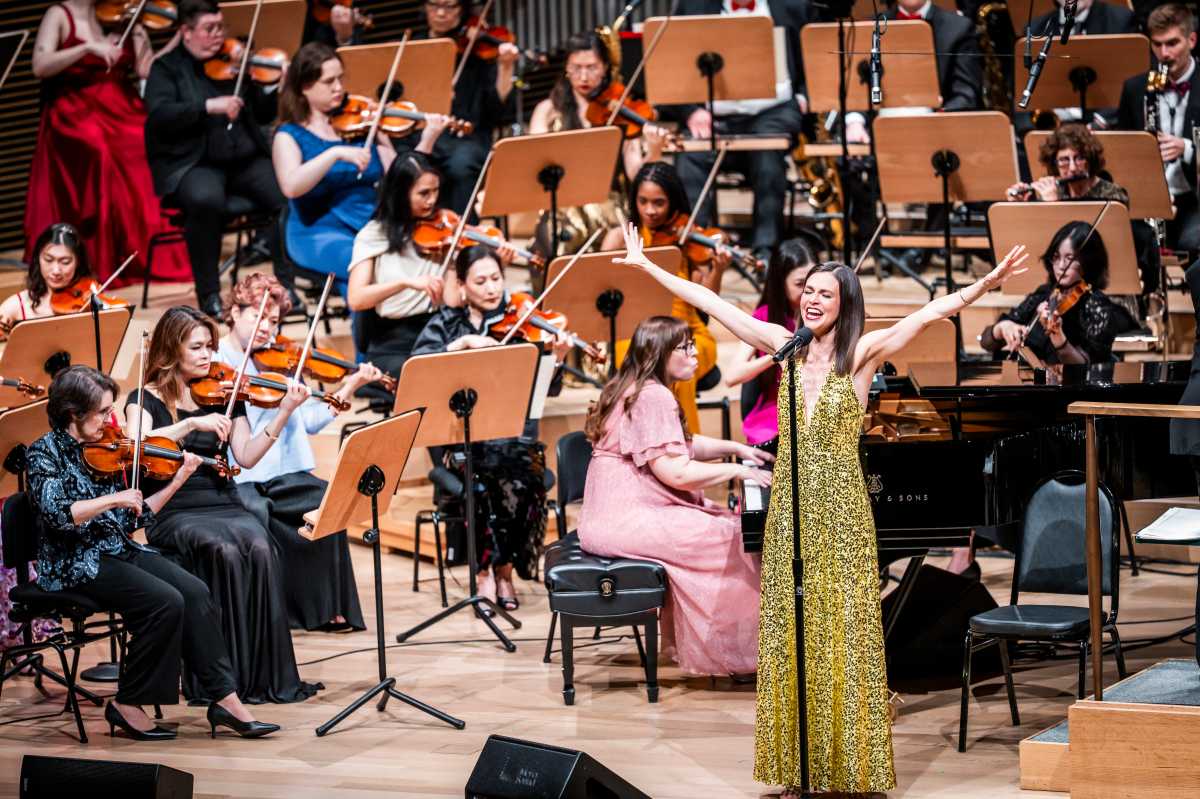
Some voices sing, and then there are voices that shimmer. Foster’s belongs to the latter—an instrument of grace and gravitas that floats one moment like silk and lands the next with Broadway brass. She sang jazz standards and selections from her theatrical canon, but something far more intimate emerged between each note: an artist in dialogue with her past, her present, and the sheer act of becoming.
Her collaborator and conductor, Michael Rafter—making his New York Philharmonic debut—guided the Orchestra with intuitive precision, crafting a soundscape that wrapped around her like fine cashmere. The chemistry between them was immediate and electric, charged with years of collaboration and an almost sacred trust. This was not a mere concert—it was communion.
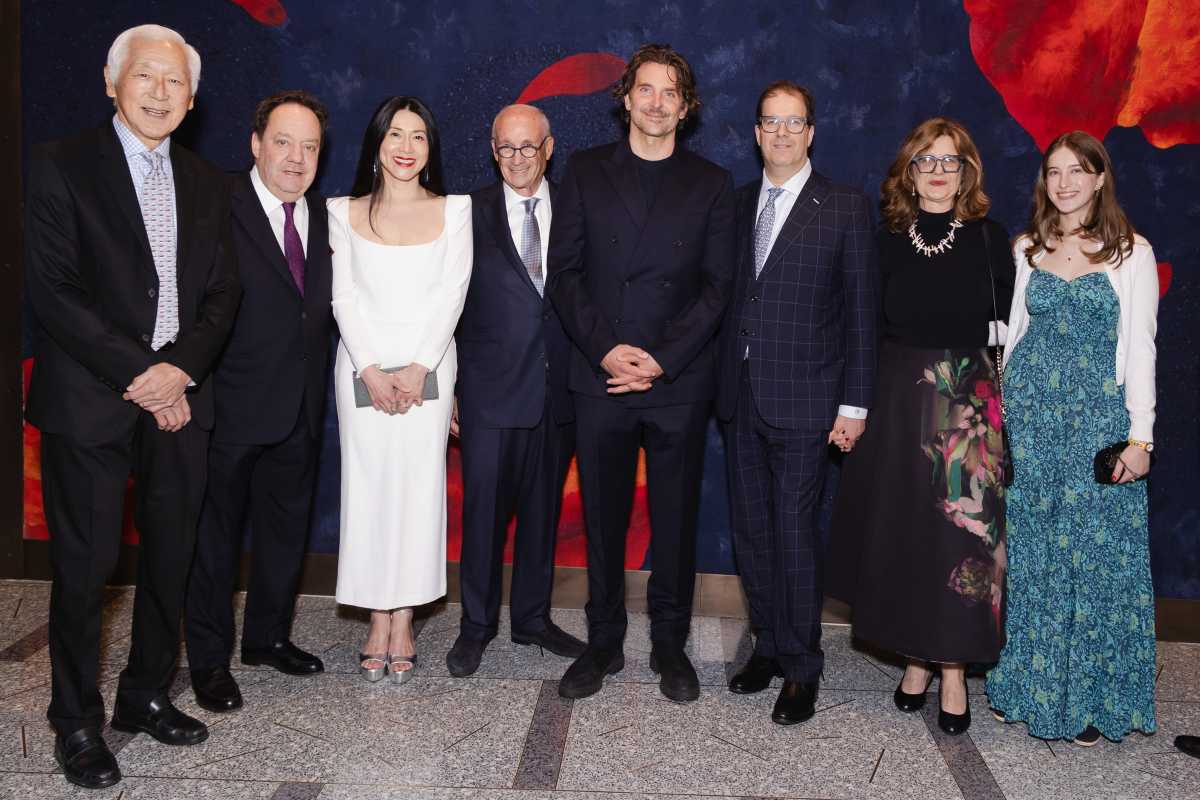
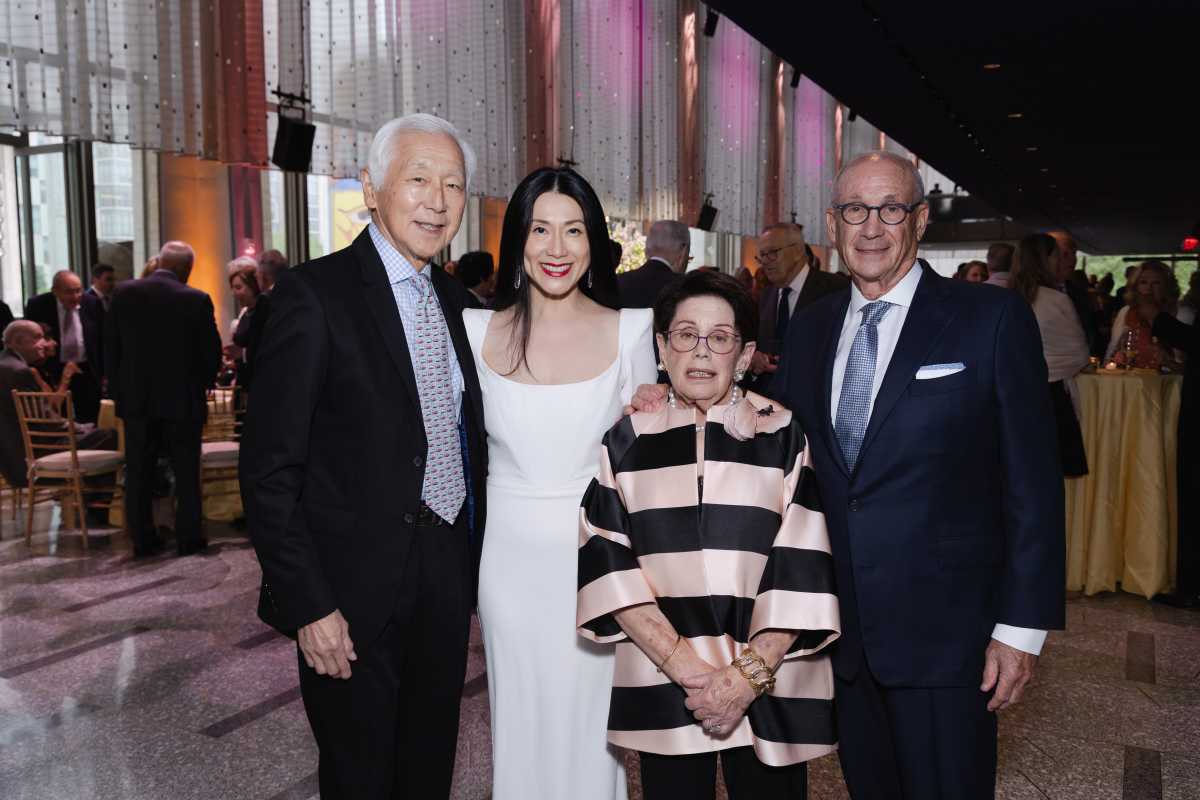
Foster’s delivery was tender, unguarded. Her reflections on motherhood felt like unscripted offerings; her phrasing held time in its palm. Gershwin bloomed anew. Sondheim ached with fresh sorrow. In her hands, the American songbook became a living manuscript—annotated with laughter, longing, and the hush of a thousand unseen stories.
Following the final ovation, guests returned to the Leon and Norma Hess Grand Promenade, where a three-course dinner awaited—light green linens kissed by candlelight, centerpieces of peonies and ranunculus unfolding like pressed flowers in an old opera program. Designed by DeJuan Stroud with lighting by Andrew Grant, and catered by CxRA, the space became a ballroom in bloom—lush, cinematic, utterly transportive.
New York Philharmonic President and CEO Matías Tarnopolsky, along with Board Co-Chairmen Oscar L. Tang and Peter W. May, offered tributes that carried both institutional weight and familial warmth. Over $1.8 million was raised for the Philharmonic, a testament to both the cultural capital of the evening and the enduring generosity of its community.
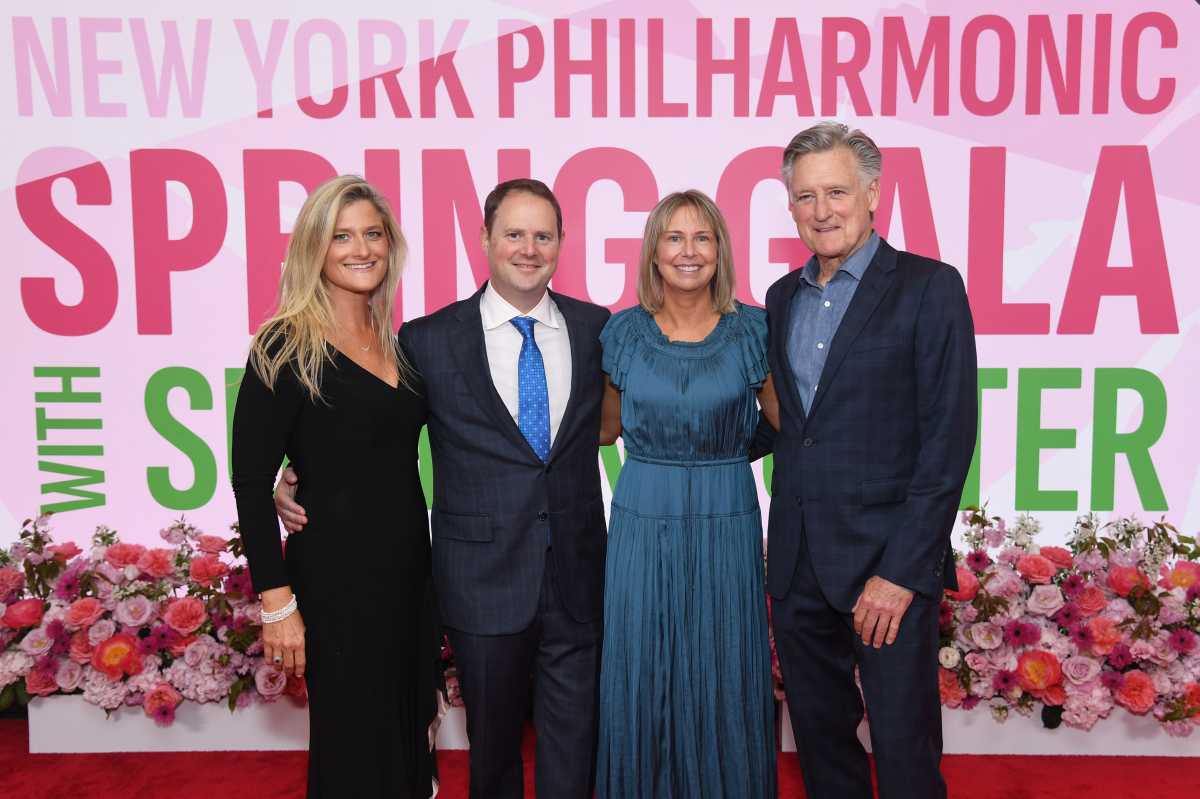
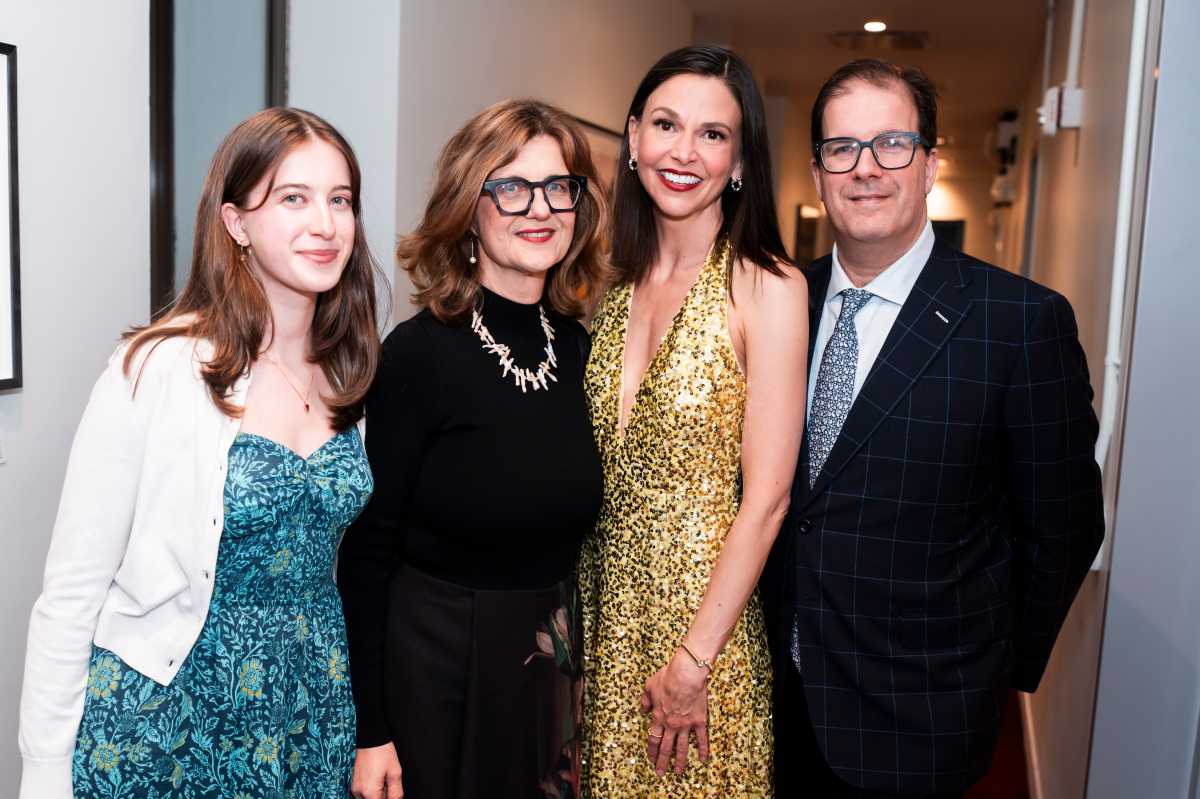
Matías TarnopolskyPhoto by Chris Lee/New York Philharmonic
Among the nearly 400 guests were luminaries from every corner of New York’s cultural compass: actor and board member Bradley Cooper, the ever-compelling Bill Pullman, James L. Nederlander, Alexander and Kristen Klabin, and Mariko Silver. Yet even among so much brilliance, it was the music that stole the night.
The Philharmonic has long been a vessel for grandeur, but on this particular evening, it became something rarer—a mirror held to the soul of a city that still believes in beauty. Sutton Foster did not merely perform; she channeled. She reminded us that the intersection of memory and melody is sacred ground.
In the echo of her final note, and in the quiet reverence that followed, we were reminded of what we risk forgetting in the noise of modern life: that art, when made with sincerity and shared with purpose, does not entertain—it awakens.
It was, in the truest sense of the word, unforgettable.



